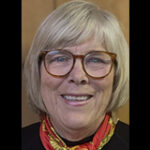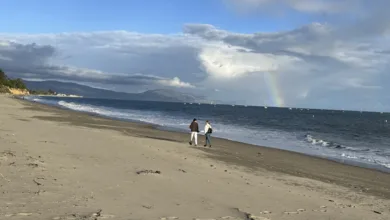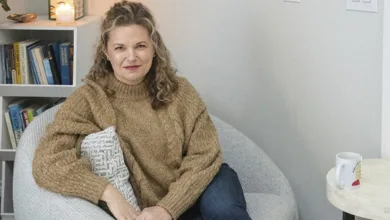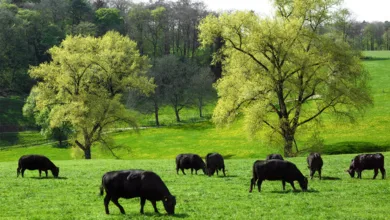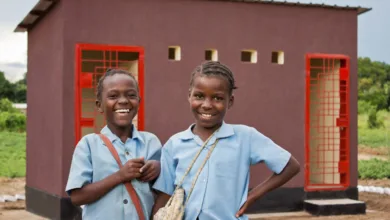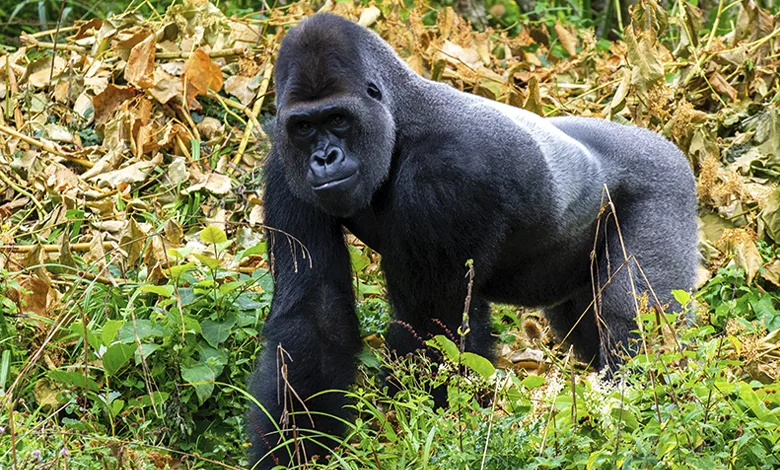
Admittedly, I don’t think much about cows every day. They are not on my radar except for the milk jug in my refrigerator.
Cows come in second to the mountain gorillas I trekked up to see during a once-in-a-lifetime trip to Rwanda. Gorilla tourism is a vital product of Rwanda’s economy, as it is one of the poorest countries in the world. It is also part of the country’s identity to protect American primatologist and conservationist Dian Fossey’s extensive work with these gorillas before she was brutally murdered for just such work in 1985.
Cows, however, are also a part of Rwanda’s identity, as six friends and I discovered after a challenging climb up a volcanic rock mountain to stand four feet away from a Silverback staring at us with boredom. We were not on its menu that day since mountain gorillas are herbivores who love to lie in heavy bush munching on bamboo.
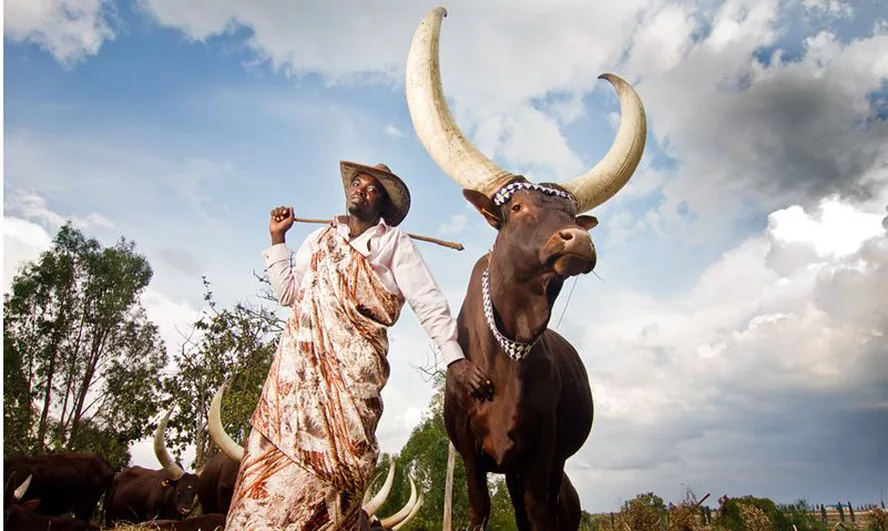
But cows are just as much a part of Rwanda’s cultural heritage and customs as are the gorillas. Cows are even more essential to reducing extreme poverty in rural areas if a Rwandan owns just one. A cow can increase household income through the sale of milk; it can fertilize soils with manure and raise crop yields in often depleted soil; it can produce biogas to provide energy to a home.
Our group learned this lesson at the Iby’Iwacu Cultural Village in Volcanoes National Park. We met local people in their environment as we interacted with their traditional dance, music, crafts, traditions, stories, artifacts, and community enterprises.
One lady brewing the local banana beer told us she would only marry once she got a cow. She was adamant, saying, “I don’t want a husband until I am rich myself.” She then gave us a taste of the beer.
When I then became a participant in a rendition of their traditional wedding ceremony, I fed off this “cow knowledge.” Cloaked in a wedding garment, I was placed on a stretcher and carried to the wedding hut by four young men. Following me were many women bringing gifts and singing songs for my newfound station in life.
Wanting to do my part as an actor, since I majored in speech and drama in college, I boldly singled out a man to marry. The next step was my “bride gift” (dowry). I promised him a cow. “Heck, I’ll donate three cows,” I glibly said in what I thought was good fun.
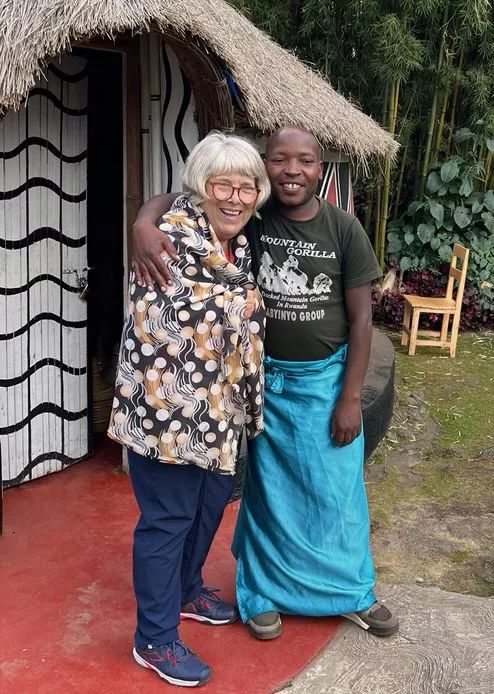
Culturally, I learned a lesson when I bought hand-carved gorillas from my “husband’s” business.
He told me he already had a wife and four sons and struggled to pay for their schooling. Without a beat, he wanted me to also buy that cow for him.
I froze at that moment with a response. It was awkward on so many different levels. Should I tell him our group was already donating money to our guide’s village devastated by floods last spring? Should I tell him about the supplies we brought for the schools we would be visiting other than his kids’ school? Should I tell him I am not in the top 2% of wealthy Americans? Should I tell him I once contributed to Heifers International even though I don’t know who ended up with the cow?
Pathetic excuses when his need was personal in the here and now when 38.2% of his people live in poverty and 16% in extreme poverty. As an actor in this play, I was just too shallow for this role.
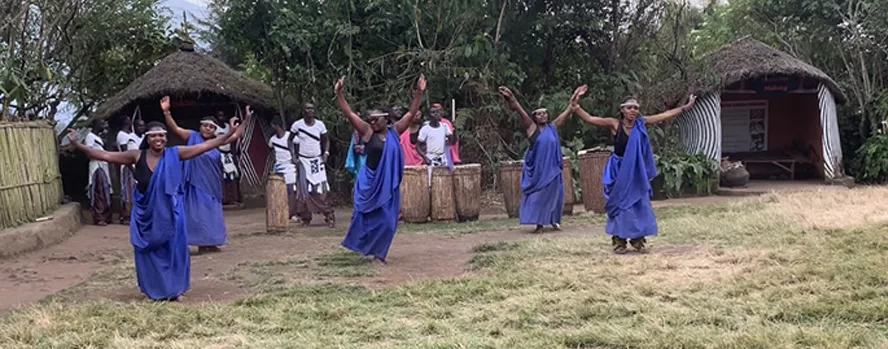
I had come to a country to trek with the mountain gorillas, but I learned about cows. I learned traditional dances include the whole body with arms stretched upward like cows’ horns. I learned cows are part of Rwanda’s creation myths, as Imana (God) gave Rwandans cows so they could survive. I learned cows symbolize wealth and social status, and I learned I could not give a carver of gorillas the wealth and social status of a cow-driven life.
I will be challenged on my next trip to walk a mile in someone else’s shoes, whether they fit me or not. Will I take with me the lessons I learned in Rwanda? Will I have the courage to be more than just another American actor in a foreign land?
“Broad, wholesome, charitable views of men and things cannot be acquired by vegetating in one little corner of the earth all one’s lifetime, ” Mark Twain said.
Maybe that is what a bucket list is for — to experience places like Rwanda and let the people and their culture enrich our lives.
Bev Graves is a retired high school teacher who now writes curriculum and articles for the Ohio State Bar Foundation. She also presents that curriculum to students throughout Ohio.

